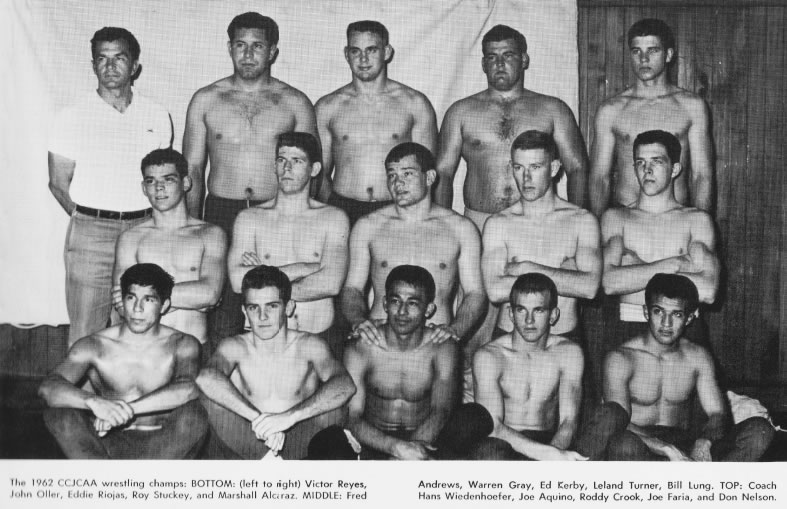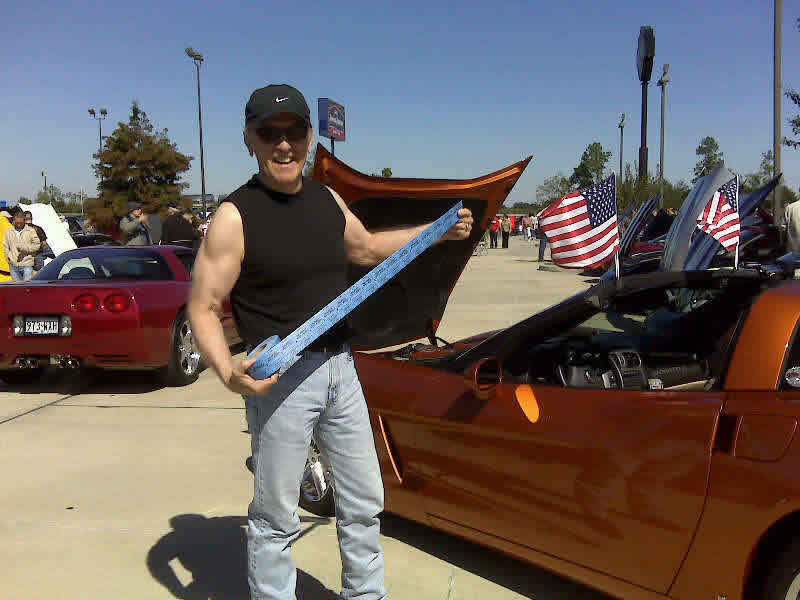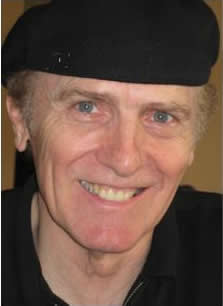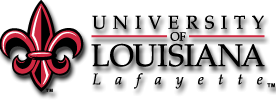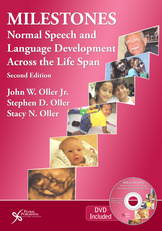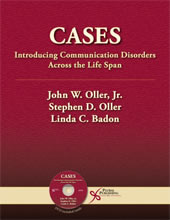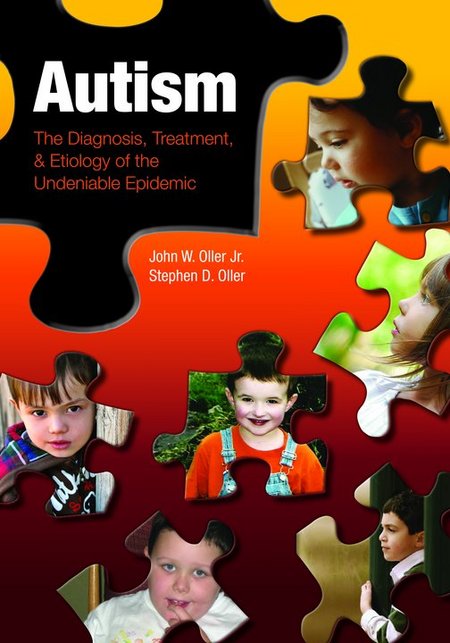What Makes a Great Teacher?
When I think back over the years and ask myself how many of the teachers I have known had a great influence in my life, only a few among the many come to mind. What made those few teachers stand out? Interestingly, most of the ones who made a difference for me were unlikely suspects. Serveral of them taught at the Junior College in Fresno, and I didn't expect to find any folks at that school whom I would count among the greats... but that's where I met most of them. They were there at good old Fresno City College. At the time when I started out, I'd have preferred to be at Berkeley, Stanford, Davis, or anywhere but Fresno City College. Later I would go on to graduate from what is now the California State University at Fresno, then it was just Fresno State College, and I would go on to do a Masters and Ph.D. in General Linguistics at the University of Rochester in New York. The "U of R" was the only privately funded school I ever attended and it was certainly a great place to study. Later still, I became a professor at the University of California at Los Angeles, a California school that competes most favorably with MIT, Harvard, Berkeley, Stanford and the other great American Universities. What is interesting in retrospect to me is that the greatest teachers I had were at Fresno City College by a fairly long shot. They were consistently ahead of the ones I met later on in the higher reaches of academia, or "academeania" as one of the doctoral students at the University of New Mexico once called it.
Well, to return to the central question, what made those few standouts that I met at Fresno City College, the unlikely suspects, what made them great. At the time I didn't realize how great they were. That realization would not come until later, after I had joined the faculty at UCLA and after that other institutions of higher education working at the doctoral level.
Who were the greats anyway? For one, at the top of my list, there was my college wrestling coach, Hans Wiedenhoefer, Sr. His picture is the one I show here because, as it turned out, I learned more from him in a relatively short time span, just one season of wrestling, than from all the others. Also, as they say, the proof is in the pudding. That is, he got the results and delivered what he said he could do. He told us that we would win the tri-state meet of all the west-coast junior colleges (of which there were 52 in California alone at that time, more than in all the rest of the nation put together, and we did). There were schools from Arizona and also from Oregon in that competition, but the bulk came from California.
I didn't take Wiedenhoefer for a great teacher at first. He seemed not to be working hard at anything. Easy going, not in a hurry, but in retrospect he was easily the greatest teacher I ever had (excluding my own father from the field of competitors). He was, also, excluding my dad, the greatest mind and athlete (in my view) that I had the privilege of working with in all my educational experience. I also had a great speech teacher who saw me in a Lion's Club speaking contest and said, "I can help that kid." And he did. He called my dad and made an appointment for me to go to his house and learn how to improve my public speaking approach. His name was Dan Ozier. Then there was Dr. Just. He was my philosophy teacher who also taught comparative religions. He was the only Ph.D. on the slate of teachers at Fresno City College in academic 1961-1962 when I started college. Mrs. Brenneman, my English teacher, was notoriously difficult to please and had the distinction of being able to wrap her legs around each other and the table leg at the same time... but she was one of the greats.
What was it about any of these people that made them great? A few years ago, I was blessed with a Distinguished Educators grant from the Public Service Company of New Mexico to study the traits of teachers that students and teachers at all levels of education value the most. Cutting to the bottom-line, students evaluate teachers for their knowledge of the subject matter first and foremost and equally important though subordinate to knowledge they value teachers for caring for students and for their ability to communicate both knowledge and love for their students. Enthusiasm is a key feature of communication and compassion is another. When you put it all together, the four most important traits all come down to one key element communication. Teaching is just a highly developed form of effective communication, the kind of sharing that John Dewey described as the most "wonderful" of all human affairs.
For all of my university teaching career, something I set out to do when I was in the fifth grade, I have observed teachers. I have sought to emulate some and to eschew the methods of others. None influenced me as much as Wiedenhoefer. What was different about his teaching? For one thing it was individualized. He never did the same things with any student, and yet he was consistent as could be. He told us all to do certain things on our own, to run two miles everyday, to do 50 neck bridges, to do 20 chin ups, and to spend a couple of hours at every work-out on the mat. He always taught in context. He would stop the action in progress and suggest, try reaching in here under the arm, and he would then have us resume action. Everything I learned from Wiedenhoefer in practice I could employ in the very next match I wrestled.
To illustrate the kind of teacher he was, I will tell a couple of stories. One of them concerned a young lad named Bill Lung. He would go on to a bunch of championships and was one of the best wrestlers I ever saw in my life. But one night at an exhibition match, he behaved like a guy who thought he was the greatest thing since rock and roll. He acted like a Prima Dona, shimying his way around on the mat and he lost to a much inferior opponent. Afterward we were in the locker room and he asked me, "Johnny, what went wrong out there?" Before I could answer our handsome coach walked by and Bill turned to him and said, "Coach, what did I do wrong?" The coach looked him in the eye and said softly, "Let's face it, Bill. You went out 'there thinking you were the great 'Bill Lung'." Then the coach walked on and didn't say another word. Bill sat down on the bench next to me and asked, "Johnny, Did I do that?" All I could say was, "Yes." It was the truth. He got beaten because he acted prideful and was more concerned about how he looked than how he was wrestling... But he never did that again, and his life was changed. So was mine. I learned from that. When a guy didn't do well because he ran out of steam and asked the coach what went wrong, the coach merely would ask, "Are you doing your running?" Everything he said and did was useful. You can see Bill and me and the rest of our 1962 Tri-State Championship team (CCJCAA consisiting of California, Oregon, and Arizona) along with Wiedenhoefer in the following picture.
Recently, my son Mark sent me the the obituary for my coach. The pictures above show what Wiedenhoefer looked like when I knew him. The obit reiterated some of the things that I knew about Wiedenhoefer but it left out a couple of things that I will tell here. It mentioned that he was wounded at Iwo Jima. It didn't say that he was one of the first point men to land on that island where the famous flag raising would later take place. It didn't tell that all the athletes at Fresno City College were in awe of the 40 year-old Wiedenhoefer who had a more beautiful physique than any other athlete at the college. It mentioned his football honors, his being inducted to the Coaches Hall of Fame for his work in wrestling, football, golf, and fencing. It mentioned his interest in history and the fact that he was often a guest lecturer in the classes of folks like "Wild Bill" Rumley and Mr. Hendrickson. The obit noted that he started fencing at age 47 and went on to coach winning teams and to win national senior titles himself. It didn't tell about his being runner-up in the nationals two years running in college wrestling at San Jose State. The article did tell of his interest in history. Of course, he was a great athlete and a world-class coach judging from his victories alone, but there was much more to him. What I want to focus on here are traits as a teacher. What made him great at that?
He knew his subject matter and he could communicate it. I remember one particular incident that was life changing in a special way for me. I did not understand the full significance of it until I read the obituary and then called and talked with the his surviving sons, Hans Jr. and Curt, who are now older than their dad was back in the day. I remember when the coach would bring his boys with him. Hans, the elder of the boys, could walk the ladder hand-over-hand where I did my 20 chin ups every work-out. Curt was not up to that yet, but he could hang on the bar. They were two little black haired chips off the old block. Even then they looked like their dad. On one particular evening when my dad was present for a work-out, as he often was, Wiedenhoefer told him that he could make a champion out of me. He said I could be a state champion in my first year. I was amazed that he thought so much of me.
About that time a young man came out for the team whom I had known in high school. He had been a Fresno City Champ during my junior year in high school. My dad was there that night and watched the whole practice. The new guy was Walter Whitmore. He had wrestled my older bother and had separated my brother's shoulder, also, he had beaten him more than once. That evening I just did what I had been learning to do from Wiedenhoefer and Walter was putty in my hands. I turned him any which way I liked. Afterwards, he said with a kind of angry look and voice, "I really envy you!" I tried to be calm and friendly in response by just asking innocently, "Why?" I expected him to say something about how badly I had beaten him in practice, but he didn't. He said, "It's because of your dad." Then his voice cracked as he said, "My dad has never been to any competition I have been in. Not in wrestling, not in football, nothing. But your dad even shows up to watch you practice." Up until then, I am ashamed to say, I kind of resented my dad always being
there, looking over my shoulder, offering pointers occasionally, but never again. I saw my dad in a different light from that moment on. That year, under Wiedenhoefer, I had some great moments. In my first dual meet I had to wrestle Sam Huerta who was the defending California JC champion in my weight class. This ought to have gone in his favor, but I won the match. The recorded score was a tie, but I scored 1 point and he scored none. He was awarded a point by the referee who claimed that I was stalling, but I never did that in any wrestling match in my life. I always wrestled to the last second. It was Sam who was stalling. Be that as it may, we met twice more that year. He won one and I won one, but the glory was that I beat him in the state tournament. That year I also pinned John Arnold, the winner of the Pacific Coast Internationals. Wiedenhoefer never seemed surprised about the wins, and he shrugged off losses though he didn't like them much. That year we won the state just as he predicted and Wiedenhoefer was elected Coach of the Year by his fellow coaches. Here is what I looked like back then, believe it or not.
The clincher to the story, in my mind, would come years later. It was the catalyst that precipitated this little essay. I have always thought I should write something about being a teacher and about the great teachers I have had. Always at the top of my list was Hans Wiedenhoefer. His influence is something I feel around the middle when I sit down. I still go to the gym on a regular basis. Because of him, I have never allowed myself to get out of shape. I weigh now what I did when I finished my last year of college wrestling. My first year of wrestling, however, the one when I had Wiednehoefer as my coach was the best. It was the year that defined many of my goals as an athlete, student, and teacher.
I was devastated when Wiedenhoefer accepted a Fulbright the following year to travel to Europe. I remember him saying something about visiting relatives and tying up loose ends. But it was not until I talked with his boys just a few weeks ago, that I learned the real reason that Wiedenhoefer wanted so badly to accept the chance to go to Europe in 1962-1963. It brought back the conversation with Walter Whitmore. When I talked with his sons, I learned that Hans Wiedenhoefer, a decorated hero of World War II never knew his own father. He had searched for him his whole life to no avail. Born in Germany, raised in America, Wiedenhoefer was caught up in the war in Honolulu at the time of the Pearl Harbor bombing. He and the San Jose football team were there to play the University of Hawaii when the bombing took place. He was drafted into the Honolulu police force to help maintain order after which he joined the U. S. Marine Corps.
Was he a supporter or detractor of the Nazi Regime? What became of him during or after the war? To have missed out on knowing a son like Hans Wiedenhoefer was undoubtedly a great loss. That in itself gives new insight into Wiedenhoefer as a teacher. His compassionate spirit did not keep him from intense competitiveness and a willingness to keep on learning and learning and learning. I believe that he knew the subject-matter and skills he was teaching and how to impart what he knew. He knew how to do what he was teaching me. He also cared about me and treated me as an individual. He enabled me to turn my weak points into strengths and my strengths became almost unbeatable by my competitors. He always said, "Just do what you know how to do." I have sought to take that advice and to teach others as he taught me. Communication, enthusiasm, and above all knowledge tempered with compassionate understanding of the student. He had these traits. I have tried to develop them too.
The rest of the story would have to lead to the students and/or colleagues I have co-labored and mentored alongside of and what they have accomplished. I would tell of Bruce Dennis Sales, Jiro Igarashi, Elcho Z. Redding, Marianne Celce-Murcia, Stephen D. Krashen, Richard F. Walker, Patricia Richard-Amato, Carolyn Kennedy, Jack S. Damico, Tatsuo Taira, Tetsuro Chihara, Michael Guerrero, Liang Chen, Ning Pan, Ruixia Yan, and the tale is not yet at its conclusion. I hope and believe that my students can say that I have made a difference in their lives for the better. As for me, the books are still open and the lights are still on... I have much more to learn and to write and I am thankful for every student who comes my way.
Post Script
Today is August 17, 2010 and another semester begins tomorrow here at the University of Louisiana. Several years have passed since I wrote the preceding "Essay on Teaching." I sat down to write it at PJ's Coffee Shop across from the main UL campus on one of those days when it seems that even your best friend has deserted the angels to join up with the other guys. I just decided then and there that I would reflect on the grace, the unflagging love, the loyalty and competence, the beliefs and hopes that a few great teachers gave to me. Wiedenhoefer's words "do what you know how to do" came back to me that day as they have again and again over the years.
I never dreamed when I began to write that little essay how it would impact the lives of others, much less my own. The first responses to it came from my sons, Mark Louis Oller and Stephen David Oller, and from a participant in the international conference on autism that I organized (with the help of Sertoma and ASAC) in the spring of 2007. They found the essay "inspiring." Dr. Michael Glabus, then, Director of the Laboratory of Biological Psychiatry Department of Psychiatry, School of Medicine, at Louisiana State University in Alexandria, wrote to say, "I thought the conference was superb. My opinion has changed radically on the whole issue of mercury and autism thanks to what I learned. By the way, I really enjoyed reading your essay on teaching at your web-page. Very inspiring!" He gave me written permission to quote him. In rare moments of gloom, I recurred to those early comments as points of light shining through.
Then, just a few months ago, one of the organizers of the Fresno City College Centennial Celebration, Mr. Ernie Garcia, wrote to ask two things: Would I be willing to have my essay published in the book they were preparing for the Centennial and would I be willing to nominate Hans Wiedenhoefer as one of the honorees for what they were calling "100 Stars for 100 Years."
Would I ever! Sure. He said that the College President, Dr. Cynthia Azari "thinks a condensed version of your essay would be a perfect fit." On the same day that I heard from Ernie Garcia, I also received an email from Gurdeep Sihota He'Bert, the Executive Director of the Foundation for the California State Center Community College District. She wrote, "I just wanted to say “THANK YOU” for writing such an outstanding essay! As a proud Fresno City College Graduate, I totally agree with you about the absolutely wonderful instructors at FCC!!"
Without delay I did nominate Wiedenhoefer to be one of the "100 Stars for 100 Years" and in the course of doing so I learned that Fresno City College was the first of the 108 junior colleges of California and the second one established in the whole United States. I knew that when I was competing in the "State Wrestling Tournament" (actually a tri-state west coast affair including Arizona and Oregon) in 1961-1962 there were 52 junior colleges in Caifornia alone, more than in all the rest of the nation combined. Just estimating, with 1600 faculty and staff at FCC in 2010 and over 25,000 students, in 100 years there have probably been somewhere in the neighborhood of 1.5 to 2 million students and faculty associated with the college during the last 100 years. Therefore, if Wiedenhoefer were selected as one of the honorees, it would be a significant honor in my thinking.
Ernie Garcia had also mentioned in his email that Dan Ozier, the former tennis coach at FCC and one of the great teachers I had singled out in my essay had already been selected as one of the 100 Stars. I have to add a story about Ozier who was also, as I learned during my time at the City College, an admirer and friend of Wiedenhoefer. When I was a sophomore in high school, Ozier judged a Lions Club speech contest that I won only because the other competitors performed even worse than I had. Ozier came to me afterward and offered to help me learn how to deliver a talk. That very day he got in touch with my dad who was the Foreign Language Consultant for the Fresno City Schools. During the following week and for several months afterward Ozier tutored me at his house or ours and became a virtual family member. On one occasion, during my senior year in high school, my dad, Ozier, and I were guests at an Optimists Club function honoring my older brother Randy as one of Roosevelt High's returning Foreign Exchange Students from 1959-1960. In his opening remarks, the Optimists' host mentioned that the club was glad to provide the meal to family members and asked Randy to please stand up and introduce his family guests. That was the night that Dan Ozier was formally inducted into the Oller family. Randy introduced his dad, John Oller, Sr., his brother, John Oller, Jr., and hesitated for only about half a second on Ozier's introduction before saying, "And this is my Uncle, Dan Ozier." Ozier smiled impishly to the Ollers and graciously to the Optimists, and all of us referred to him as "Uncle Dan" ever after. During my high school years Randy and I took the Ozier boys, Nick (about 6 then), Dix (about 5), and Joe (almost too little to go) on horseback rides out on the west side of Fresno near West Dudley and North Valentine where we made our humble (no kidding) abode. My brother Randy and I both took Ozier's introduction to speech communication at FCC. Imagine my delight, therefore, when Ernie Garcia said that he had stumbled upon my essay when googling Dan Ozier. All of this background just made it that much more fun to be invited to nominate Hans Wiedenhoefer.
Then, just a few weeks ago, when my wife and I were on our way to see Red Rock Canyon outside of Las Vegas, Nevada, I got a call from the FCC Public Information Office. This time it was from Kathy Bonilla. After a bit of phone tag back and forth without connecting, I thought the calls must concern the essay or the Wiedenhoefer nomination. So, I stepped out of the Denny's restaurant where my wife and I were waiting on our breakfast order (yes, what can I say, I am a purely classy guy; nothing but the best in food and ice water) and called the FCC Public Information Office. Kathy had stepped away from her desk and while I was speaking with one of her co-workers, she came back and was handed the call. I had asked if the call was about the essay, but she said no, that she was calling to inform me that on the basis of my academic record I had been selected as one of the honorees... one of the "100 Stars for 100 Years." I was speechless. I could not have said a word without literally crying out loud. When I did get my voice under control I asked if the Wiedenhoefer nomination had been accepted, and she said it had and that his boys, Hans Wiedenhoefer Jr. and Curt Wiedenhoefer, were already planning to be present at another ceremony on August 29, 2010. She also said that Joe Ozier had received the medalion on behalf of his father, my honorary "Uncle" Dan, on March 16, 2010.
When I went back into the restaurant and reported the conversation to my wife, Mary Anne, we both cried and were humbled lower and lifted higher than we had been all summer. We committed to make the trip to Fresno just a week ago to receive the award on August 11, 2010 and we learned that, fittingly, in my judgment, they saved the best for the last. Hans Wiedenhoefer Sr., my coach and teacher, was named as the 100th of the "100 Stars for 100 Years." As a wrestler and coach of wrestling, he was inducted into the National Wrestling Hall of Fame & Museum in 2003. In 1999, he had already been inducted into the California Coaches Hall of Fame for football. In the national Hall of Fame Guide, as a player/wrestler, he is listed in wrestling for 1946 and football in 1947. Weidenhoefer's legacy lives on in his brilliant and talented sons, Hans Jr. and Curt who went on to establish themselves as world-class champions and decorated competitors in football and wrestling.
His words, enthusiasm, and charismatic presence can still be felt in them and in those who knew him. What an honor to be counted among the athletes, students, and friends who benefited from his teaching... There were many highlights of the recent Centennial Celebration where FCC paid tribute to 17 of their 100 honorees, but the most memorable moments were ones shared with Hans Jr. (see the picture just below) who came to meet me and the family and friends who joined in the celebration. My son Mark, who lives in Fresno, was there with Hans Wiedenhoefer's son, as were my brother Stuart B. Oller (bear hunter), my sister Victoria Oller Rail (first grade teacher at Liddell Elementary in Fresno) along with her husband and my life-long best friend, DeWayne Rail (a distinguished poet and long-time teacher at FCC), my wife's sister Becky Chavez Evans, her husband, Dr. Mark Evans (a Dean at California State University at Bakersfield), and my cousin, Barbara White (Fresno resident and administrator with the Social Security Administration). The FCC administrators, staff, faculty, Public Information personnel, and FCC honorees came together that day in an amazing way. It was an occasion blessed by sunshine, unseasonably cool weather, and an abundance of grace. A day I will never forget.
This is me with Hans Wiedenhoefer, Jr. and just below the picture of us together is one of Hans, Jr. carrying a standup paddle board down to the San Joaquin River the day before (August 10, 2010) the medallion ceremony where he and I met for the first time ever. Next after him and his paddle board is a picture of me at an autism fundraiser put on by the Autism Society of Acadiana and the regional Corvette associaton (members of the Sertoma Club of Lafayette also served food). No, I don't own the burnt orange Corvette I am standing by but I wouldn't mind if I did. I was selling raffle tickets at that event to raise money for the treatment of autism (October 17, 2009).
Can you see the lasting influence of Hans Wiedenhoefer Sr. on both Hans Jr. (top) and me (next one down)?
The next picture is me with the President of Fresno City College, Dr. Cynthia Azari, at the medallion ceremony.
Then, the last picture below is of my family members who were able to be present for the ceremony from left to right: DeWayne Rail, Victoria (Tori) Oller Rail (my youngest of three sisters), Mary Anne Chavez Oller (my wife), Becky Chavez Evans (Mary Anne's sister), Stuart B. Oller (my brother, one of four), Mark Evans (Becky's husband), and Mark Louis Oller (my son, eldest of four).
*Any errors and the ideas expressed
here are solely those of the webmaster of this site. Contact joller@louisiana.edu.
Copyright ©2000-2014
by the University of Louisiana
